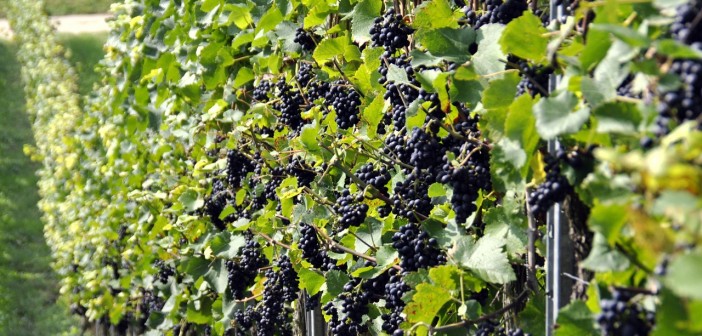When congregations live in Christ and for Christ and through Christ, something happens: fruitfulness. The expectation of fruitfulness begins in the first chapter of Genesis when God says to the human beings whom God has created, “Be fruitful and multiply.” Human fruitfulness is our response to God’s own fruitfulness in making the heavens and earth and everything within it. (Genesis 1:28) That expectation of fruitfulness runs throughout the Scriptures concluding with the last chapter of Revelation in which the new creation is envisioned with a river of life flowing through the holy city. On each side of the river is the tree of life with twelve kinds of fruit, producing fruit each month, and its leaves are for the healing of the nations. (Revelation 22:1–2)
Life in Christ and fruitfulness are inextricably bound together. The Book of Acts offers powerful testimony to how the practices of faith and the fruits of faith are connected.
Jesus spoke about fruitfulness many times. There are stories and sayings about fruitfulness in all four gospels. It was that important.
- In Matthew, Jesus describes a disciple’s life in terms of fruitfulness. He says, “Every good tree bears good fruit, but the bad tree bears bad fruit. A good tree cannot bear bad fruit, nor can a bad tree bear good fruit. Every tree that does not bear good fruit is cut down and thrown into the fire. Thus you will know them by their fruits.” (Matthew 7:17–20)
- Mark tells the story of Jesus being hungry and seeing a fig tree in full leaf. He comes up to it expecting to find something for breakfast. Instead, there is nothing but leaves. He says to the tree, “No one is going to eat fruit from you again — ever.” (Mark 11:12–14, The Message) That’s a pretty high price to pay for a lack of fruitfulness.
- Luke tells us the parable of the farmer who went out to plant some seed. Some seed fell on rock. They dried out. Some fell among the thorns. They were choked out. However, some fell on good soil. When they grew, they produced an abundant harvest. Jesus said, “Let those who have ears to hear listen.” (Luke 8:4–8)
- In John’s gospel, Jesus describes the relationship between life in God and fruitfulness. He puts it this way, “I am the vine; you are the branches. Those who abide in me and I in them bear much fruit, because apart from me you can do nothing. Just as the branch cannot bear fruit by itself unless it abides in the vine, neither can you unless you abide in me.” (John 15:4–5)
The apostles and earliest disciples of Jesus bore much kingdom fruit. They were able to do so because God, through the gift of the Holy Spirit, was in them, and they were responsive and obedient to the Spirit’s leading. Life in Christ and fruitfulness are inextricably bound together. The Book of Acts offers powerful testimony to how the practices of faith and the fruits of faith are connected. We hear the witness of these Christians practicing their faith. Then we hear about the fruits that are produced.
- Notice what happens as the apostles practice radical hospitality. “That day about three thousand persons took Peter at his word, were baptized and signed up.” (Acts 2:41, The Message) How do we know 3000 people were baptized? Somebody counted, and the church thought the number was important enough to record and keep for 2000 years. By the way, they wouldn’t have counted women and children, so many more people were actually baptized.
- Notice what happens as the apostles practice passionate worship. “They followed a daily discipline of worship in the Temple followed by meals at home. Every meal was a celebration, exuberant and joyful, as they praised God. People in general liked what they saw. Every day their number grew as God added to those who were being saved.” (Acts 2:46–47, The Message)
- Notice what happens as people participate in risk-taking service and mission and extravagant generosity. “Everyone around was in awe — all those wonders and signs done through the apostles! And all the believers lived in wonderful harmony, holding everything in common. They sold whatever they owned and pooled their resources so that each person’s need was met.” (Acts 2:43–45,The Message)
Fruitfulness is evidence that the branches are connected to the vine. Fruitfulness is evidence that a congregation is achieving its mission. If your congregation is not demonstrating increasing levels of fruitfulness, it may well be lacking some of the practices of faith that Jesus taught us. The question is whether we are practicing the kind of holy living to which Jesus called his disciples that produces fruit.







